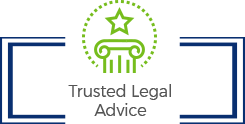Founded in 2009, The Noble Law offers consultations and legal advice for cases of workplace assault and sexual harassment issues in both South Carolina and the Triangle Region. We think of our clients as part of a team, and open communication is a key part of what we do. When it comes to cases of workplace harassment, it can be incredibly hard to speak out against your employer. When you work with The Noble Law, you gain access to a team of employment lawyers who will work to understand your situation and help you understand your legal options. Schedule a consultation with a workplace harassment lawyer in South Carolina or North Carolina today.




National Workplace Harassment Statistics
The EEOC reported that between FY 2018 and FY 2021, the agency received 98,411 harassment charges, with 27,291 of these specifically related to sexual harassment. These statistics underscore a notable increase in harassment claims following the #MeToo movement, reflecting a growing awareness and willingness among individuals to report harassment (EEOC, 2024)
Workplace Harassment in North Carolina
Specific data on workplace harassment in North Carolina mirrors the broader national trends, with the state experiencing significant challenges related to workplace misconduct. In 2023, North Carolina had one of the highest numbers of harassment claims filed with the EEOC, particularly those involving sexual harassment and discrimination based on race or national origin. These patterns are consistent with the state’s diverse workforce and its prevalence of industries, such as hospitality and manufacturing, where these issues are more likely to occur (EEOC, 2023).
What is Workplace Harassment?
Harassment is a form of employment discrimination that violates Title V11 of the Civil Rights Act of 1964, the Age Discrimination in Employment Act of 1967, and the Americans with Disabilities Act of 1990 (ADA).
More generally, workplace harassment is unwelcome conduct based on race, color, religion, sex, pregnancy, national origin, age, or disability. Workplace harassment has a broad definition and takes many different forms, but it becomes unlawful when:
- Enduring the offensive conduct becomes a condition of continued employment at the workplace.
- The conduct is severe or pervasive enough to create a work environment that a reasonable person would consider intimidating, hostile, or abusive.
Our employment law firm provides legal counsel to individuals experiencing various types of workplace harassment, as well as workplace discrimination. In an ideal world, everyone would be able to work without being harassed. Unfortunately, that is not the case. But know that you do not have to put up with unacceptable behavior from anyone at your job. You deserve a safe workplace and our employment law firm is here to help advocate for you and help restore your dignity, defend your compensation, and move towards closure.
If you are suffering from workplace harassment, schedule a consultation with one of our employment law attorneys in North Carolina or South Carolina.
What Does North Carolina Law Say About Workplace Harassment?
Employees across the nation are protected by a strong network of federal laws that ban practices such as harassment and discrimination. North Carolina employees enjoy additional protections provided by The North Carolina Equal Employment Practices Act (NCEEPA).
This law prohibits employers from discriminating against employees on the basis of race, sex, age, national origin, ethnicity and other protected characteristics. These prohibitions apply to both currently employed workers and those seeking employment.
If you have been harassed or discriminated against, The Noble Law can leverage the full power of state and federal employment laws to help you pursue the justice and compensation you deserve.

Workplace Harassment Statute of Limitations
It is best not to delay in coming forth with an allegation of sexual harassment. Under North Carolina law, you generally have 180 days from the date of the alleged harassment to file a claim with a government agency. Talk with an experienced workplace harassment lawyer at your earliest convenience. If you let that deadline expire, you may lose your rights.
Another reason to come forward sooner rather than later is that prompt action is a key component to legal success. Evidence tends to fade over time. Key witnesses may move out of state and be difficult to reach. The sooner an experienced employment law attorney can begin working on your case, the better chance they will have of helping you obtain the favorable result you want and deserve.
What Compensation Is Available for Harassment Victims?
Every case is different, but some of the positive outcomes you may enjoy if your workplace harassment claim is successful include:
- Back pay—if you were fired or forced to quit your job due to the harassment, your employer may be required to compensate you with the wages and benefits you missed out on.
- Reinstatement from a job you lost—if you were fired, a successful claim may require your employer to give you your job back. If the harassment caused you to miss out on job placement or advancement, you may be granted the position or promotion you should have gotten in the first place.
- Pain and suffering—you also may be able to recover monetary damages forthe pain and trauma the harassment inflicted upon you, including emotional and physical suffering.
- Legal fees—your employer may also be required to pay your attorneys’ fees and associated expenses.
The process of settling a harassment claim is flexible and many different outcomes are possible. For instance, you may not want your old job back, but prefer to be compensated in some other way. Our attorneys will work with you personally to gain an understanding of the outcome you want, and the types of compensation that are most important to you, so we can tailor a legal strategy suited uniquely to you.
As much as workplace harassment has robbed you of, taking legal action can help you obtain a sense of justice and the financial compensation you need to move on to the next stage of your life and your career.
Steps to Take if You Experience Harassment
If you’ve been harassed at work, you might feel embarrassed or humiliated. It can be challenging to know what to do or who to trust.
A few things you can do right away include:
- Document incidents of harassment—include the harasser’s identity, the words or actions involved, the times, dates, locations of the incidents, and potential witnesses.
- Report the harassment to your employer—follow your company’s procedures for reporting harassment claims by talking with your manager or HR representative.
- Know your rights—if you have been harassed at work, remember that the law is on your side. You don’t have to put up with it, and you don’t have to suffer in silence. Knowledge is power. The more you know about Title VII and other employment law statutes, the more control you can take over the situation.
- Talk with an employment law attorney—you don’t have to face this struggle alone. A skilled and experienced employment law attorney can level the playing field while helping you explore all the legal options available to you.
Retaliation Protection
Many employees are reluctant to report sexual harassment because they need their jobs and fear they will be fired, demoted, or otherwise adversely affected by blowing the whistle. These fears, while understandable, don’t have to hold you back from taking legal action.
The powerful laws that protect you from sexual harassment also prevent your employer from retaliating against you for reporting the harassment or filing a legal claim. Retaliation can take many forms, including termination, demotion, suspension, denying promotion, unfavorable work assignments, false rumors, threats, increased scrutiny, etc. If you think you might be the victim of retaliation, document it and speak with a workplace harassment attorney.

Know Your Rights
Employees in North Carolina are protected by a strong network of state and federal laws prohibiting workplace sexual harassment and other employment violations.
Federal laws and agencies addressing workplace harassment include:
Title VII of the Civil Rights Act of 1964
Title VII prohibits employers from discriminating based on race, religion, ethnicity, national origin, sex (including sexual orientation, pregnancy, and gender identity), and other protected characteristics. The law also prohibits all forms of harassment based on these characteristics, including sexual harassment, and protects employees from retaliation in response to filing harassment claims.
Equal Employment Opportunity Commission (EEOC)
The EEOC protects employee rights by enforcing laws pertaining to sexual harassment and other forms of workplace discrimination. The federal agency has the power to investigate harassment claims, facilitate mediation, and sue employers for harassment violations. This applies to most employers with at least 15 employees.
Civil Rights Act of 1991
This amendment to Title VII strengthened employee rights by allowing harassed employees to request jury trials and to seek compensatory and punitive damages. The act directs the EEOC to expand its technical assistance and outreach activities. It also makes it unlawful to alter the results of employment tests based on race, color, religion, sex, or national origin.
State laws that apply to harassment include:
North Carolina Equal Employment Practices Act (NCEEPA)
The NCEEPA is a state law that aligns with Title VII and other federal laws to provide strong protections to North Carolina employees. The presence of a state law addressing harassment can give employees additional legal remedies to explore when filing claims against their employers.
North Carolina Retaliatory Employment Discrimination Act (REDA)
This law protects employees from retaliation if they engage in protected activities, such as filing a complaint about sexual harassment, suing their employer, or reporting misconduct.
How to File a Harassment Claim in North Carolina
If you have suffered harassment at your place of work, it can be difficult to know what steps to take. You may be worried about losing your job. It may seem as though your employer holds all the cards.
Rest assured; the law is on your side. The attorneys at The Noble Law routinely handle harassment claims and can provide you with the guidance you need to make the right decisions going forward.
Contact us if you have any questions about how to file a harassment claim in North Carolina.
The process of filing a harassment claim typically begins with contacting the EEOC, which you can reach through their public portal. Before filing your claim, it is very important to have the following information on hand:
- Information about you and your employment, including your position, date of hire, and (if applicable) termination;
- Information regarding your employer, including the name, address and the number of employees;
- The names of potential witnesses;
- Information regarding the act or acts of harassment, including precise dates and locations; and
- The reason you believe you were harassed (for instance, your sex, gender, or race).

Building the Strongest Possible Case
Every case is different, but some of the key factors in building a successful workplace harassment case could include:
- Investigation: Legal claims are bolstered by facts and evidence. A strong case will include a close look at the physical and documentary evidence, company policies, and communications between involved parties, such as emails, chat messages, and recorded calls.
- Witness testimony: The presence of witnesses can add more strength to your claim. Did anyone see or overhear the conduct in question?
- A thorough assessment of damages: How has workplace harassment hurt you—physically, emotionally, and financially? This question forms the basis for assessing damages and the compensation you are entitled to from your employer.
The Noble Law, a women-owned practice, is a recognized leader in employment law with offices in North Carolina and South Carolina. We work to deliver outcomes with integrity and empathy for our client’s journey.
Workplace Sexual Harassment
Sexual harassment in the workplace can be emotionally devastating and create minefields on the job. This type of workplace harassment creates hostility, loss of trust, and makes employees feel unsafe or threatened at work.
Examples of workplace sexual harassment include, but are not limited to, the following:
- Inappropriate comments about someone’s body or appearance
- Offensive comments or remarks about a person’s sex
- Gender- or sexual orientation-based slurs
- Vulgar, offensive, or explicit jokes (even if they are not aimed at you specifically)
- Sending sexual emails, texts, or other messages
- Staring, glancing, or excessive eye contact
- Asking personal questions of a sexual nature
- Implying or stating that your job position depends on your response to a sexual advance
What counts as sexual harassment is determined by what the person who is being harassed thinks and feels, not what the person who is committing the harassment thinks is fine to do in the workplace. More so, behavior still qualifies as sexual harassment even if you do not immediately say “stop” in the moment. Laughing along with an offensive joke or accepting an unwanted hug because you are worried about the person’s response is a normal response to behavior, especially if that person has more power than you. However, know that responding this way does not make the sexual harassment less serious.
Identifying, documenting, reporting, and following through on sexual harassment claims is an intimidating experience so it is important to choose an employment lawyer with specific experience pursuing them. If you are experiencing sexual harassment, our employment law firm can help. Schedule a consultation with one of our employment attorneys today.
Sexual Harassment Video Resources
Knowing your rights in the workplace can help you determine when a fellow employee or boss has crossed the line. Learn more about sexual harassment in the workplace and what your options are. These videos provide a general overview of employment law resources. If you are in need of legal counsel, please schedule a consultation with our employment law attorneys in either North Carolina or South Carolina.
Understanding Sexual Harassment
50 States Sexual Harassment Review
Sexual Harassment Investigations
Workplace Assault
You have the right to be safe in your workplace, and workplace violence is illegal and unacceptable. If you were assaulted at work, our employment attorneys can help you seek redress from your attacker (s) and your employer.
Federal courts have held that if a manager or supervisor commits a single incident of sexual assault, that assault can create a hostile work environment that is actionable under Title VII. In addition to federal charges, you may also have a state cause of action for Intentional Infliction of Emotional Distress, Negligent Infliction of Emotional Distress, or False Imprisonment.
All employees are protected by employment laws, and our employment attorneys are here to help you. We represent clients in cases of workplace assault, and we are here to listen to your story and help you understand your legal options. Our goal is to help restore your dignity, defend your compensation, and move towards closure. If you are ready to start the process, schedule an employment law consultation with an attorney at our North Carolina and South Carolina.
Workplace Assault Video Resources
Learn more about workplace harassment and assault and what your legal options are. These videos provide a general overview of employment law. If you are in need of legal counsel, please schedule a consultation with our employment law attorneys in either North Carolina or South Carolina.
Hostile Work Environment
What to Expect from a Consultation
The Noble Law Can Help
Federal and state laws provide remedies for harassment on the job, but pursuing a claim is confusing, and stressful. Many employees who take this brave step also find themselves the target of employer retaliation. Choosing strong and experienced counsel is an important step to protect your rights. The Noble Law is trusted counsel for workplace disputes.
A claim with the Equal Employment Opportunity Commission or a workplace harassment lawsuit can lead to back pay, front pay, promotion or reinstatement, attorneys’ fees, damages for mental and emotional suffering, punitive damages, and injunctions ordering that the offensive conduct stop, and other relief. Pursuing a claim requires strict adherence to administrative or judicial procedures but we are here to lead you through it.
It is never too soon to speak with a professional. If you contact us while the harassment is ongoing, we can guide you through the steps to address it in an attempt to stop the behavior. If the harassment does not stop, we can help you document and preserve your claims for formal legal action.
Learn More
Here at The Noble Law, we are committed to educating our communities in North Carolina and South Carolina about employment law and their rights in the workplace. We believe part of our job as an employment law firm is to share our expertise with others. Explore our resources, including more employment law videos, and keep up with our employment law firm news by following Noble Notes.
Along with representing clients with claims of workplace harassment, sexual harassment, and workplace assault, we also represent workers in other areas of employment law. These areas include executive compensation disputes; workplace discrimination; retaliation and whistleblower; and pay, overtime, and leave. Learn more about our employment law firm’s Practice Areas and if you are interested in speaking with one of our employment attorneys in North Carolina or South Carolina, contact us today.













